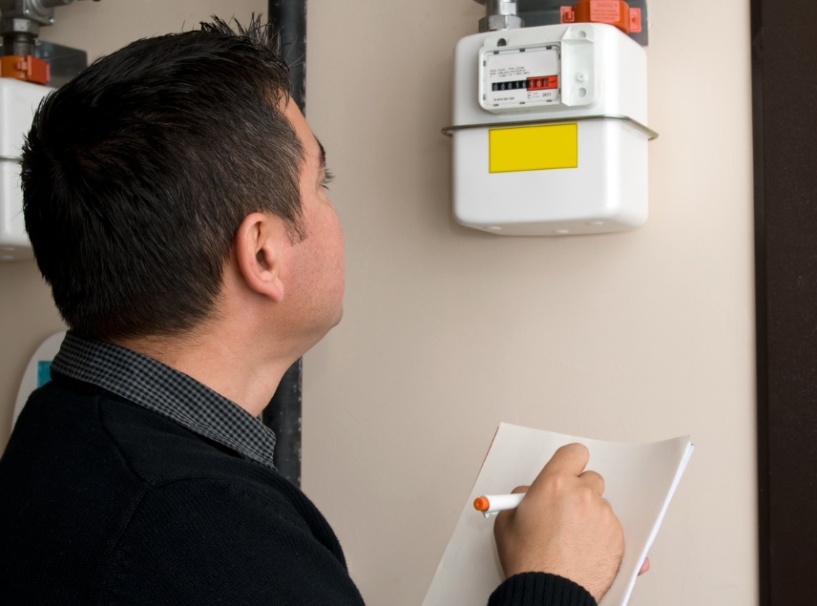Comments
- No comments found

Energy bills in the UK are expected to see a significant reduction in April, providing a welcome relief for households grappling with a cost of living crisis.
Cornwall Insight, a leading consultancy, forecasts a 15% decline, translating to an annual savings of approximately £293 for a household with typical gas and electricity consumption. This projection, which puts the annual bill at £1,635, the lowest in over two years, comes ahead of Ofgem's impending announcement on the energy price cap for the next three months.
The anticipated drop in energy bills is attributed to several factors, including a relatively mild winter and lower-than-feared disruptions in the Red Sea. These conditions have helped maintain wholesale prices at a more favorable level. Cornwall Insight predicts a further decrease in July to around £1,465 annually, followed by a modest rise to £1,524 in October. However, the forecaster emphasizes the potential impact of global events on these projections, cautioning against complacency.
Craig Lowrey, Principal Consultant at Cornwall Insight, acknowledges the respite this reduction may offer amid the cost of living challenges but urges vigilance. He highlights the delicate balance in the energy system, emphasizing the potential for political or economic crises to reverse the downward trend in bills.
Despite the positive outlook, it is emphasized that even with the projected decrease, energy prices will continue to pose difficulties for many consumers. The estimated £2.9 billion owed by consumers to energy suppliers underscores the financial strain faced by households. Ofgem has proposed a £16 increase in the price cap between April and March next year to address some of these outstanding debts.
As households eagerly await the official announcement from Ofgem next week, the prospect of reduced energy bills offers a glimpse of relief in the ongoing struggle with the cost of living crisis. The dynamics of the energy market, influenced by global events and the delicate balance in supply and demand, underscore the importance of remaining cautious despite the positive forecasts.
As energy bills are anticipated to experience a substantial reduction, providing a respite for UK households, there are several strategies individuals can employ to proactively manage and lower their energy expenses.
Regularly Review Energy Usage: Consistently monitoring and understanding personal energy consumption patterns is crucial. By being aware of usage trends, individuals can identify areas for potential savings.
Invest in Energy-Efficient Appliances: Upgrading to energy-efficient appliances can lead to significant long-term savings. Devices with high energy ratings and modern technology consume less electricity, contributing to reduced bills.
Improve Home Insulation: Ensuring proper insulation in homes helps retain heat, reducing the need for extensive heating. Well-insulated properties are more energy-efficient, leading to lower overall energy costs.
Adjust Thermostat Settings: Simple adjustments to thermostat settings can make a notable difference. Lowering the thermostat during colder months and wearing warmer clothing indoors can result in energy savings.
Switch to LED Lighting: Replacing traditional incandescent bulbs with energy-efficient LED lights consumes less electricity and has a longer lifespan, providing ongoing savings.
Explore Renewable Energy Options: Investigating renewable energy sources, such as solar panels or wind turbines, offers an eco-friendly alternative and potential long-term cost savings. Government incentives may be available for such initiatives.
Regularly Compare Energy Tariffs: Staying informed about available energy tariffs and periodically comparing them ensures individuals are on the most cost-effective plan. Switching to a more favorable tariff can result in immediate savings.
Practice Energy Conservation Habits: Simple daily habits, such as turning off lights and appliances when not in use, unplugging chargers, and minimizing water heating, contribute to overall energy conservation and reduced bills.
Consider Smart Technology: Implementing smart home technology allows for more precise control over energy usage. Smart thermostats, energy-monitoring systems, and automated controls enable efficient energy management.
Seek Professional Advice: Consulting with energy experts or professionals can provide personalized insights into optimizing energy usage based on the specific characteristics of a home.
By combining these strategies and adopting a proactive approach to energy management, individuals can harness the potential for reduced energy bills, aligning with the broader trend of anticipated decreases in household energy expenses.
Leave your comments
Post comment as a guest